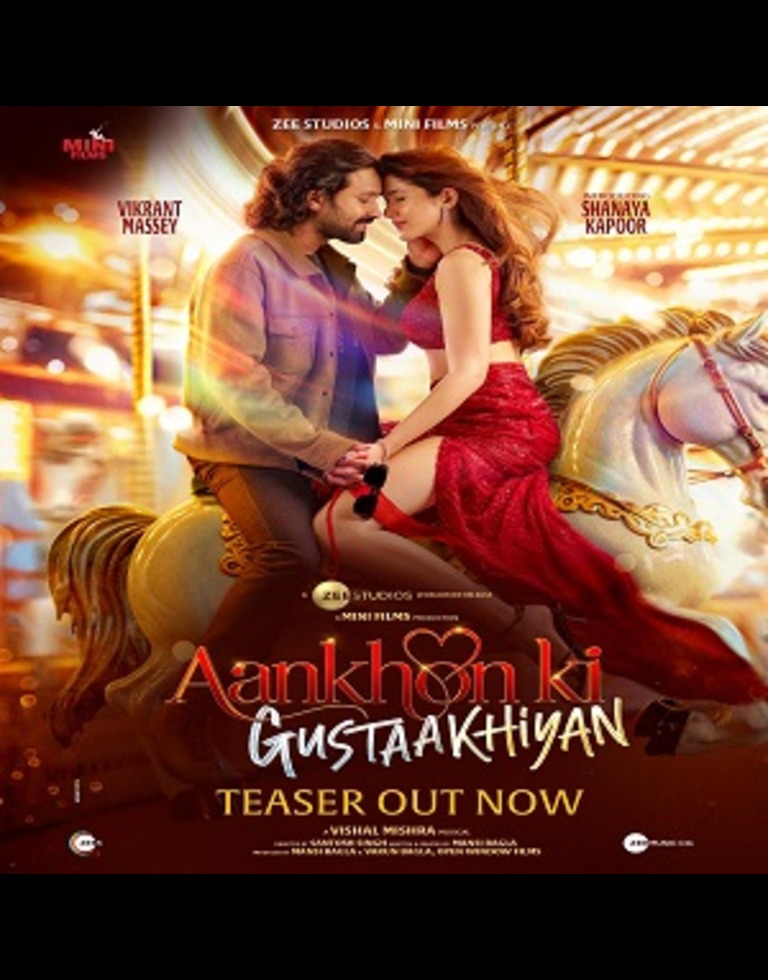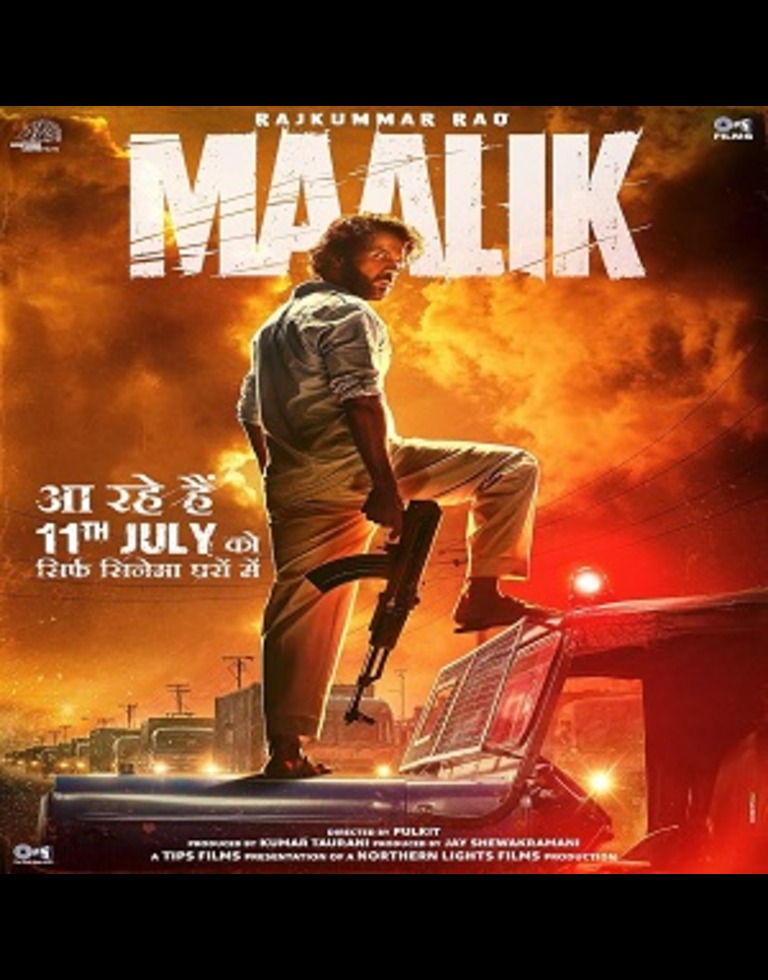
🎯 Premise & Plot
Aankhon Ki Gustaakhiyan (literally “Eyes That Dare”) centers on Aisha Sharma (Sara Ali Khan), a visually impaired classical musician whose world transforms when she meets Rohan Mehra (Vicky Kaushal), a compassionate optometrist with a small-town heart. Their chance interaction—Rohan correcting Aisha’s hearing aide malfunction—blossoms into friendship and then romance. Although inspired by the trope of the “opposites attract,” the story invites us to see the world through different senses, not curse what one cannot see but celebrate what one can hear and feel. Complications arise as both families get drawn into plans to “correct” her impairment—financially, emotionally, pocketbook-first—turning love into a broader debate on bodily autonomy and overprotective love.
🧑🎭 Performances
Sara Ali Khan delivers one of her most nuanced roles so far. Aisha’s world is expressed through her eyes and body language—poised yet vulnerable. Khan portrays a woman confident in her talent, possessive of emotional autonomy, and even irked by everyone wanting to “fix” her. When she learns a doctor speaks in pity rather than admiration of her skill, her glare breaks your heart—and you feel it.
Vicky Kaushal, as Rohan, is effortlessly warm and steady. He is confident in his love but cautious in understanding the nuances of Aisha’s impairment and identity. Kaushal brings thoughtful restraint to the romance and genuine delight in Aisha’s musicianship, allowing viewers to feel the music in shared looks and quiet smiles. His chemistry with Khan rings authentic.
The supporting cast—Neena Gupta (as Aisha’s mother), Rajesh Sharma (as Rohan’s mentor), and Shweta Basu Prasad (as Aisha’s pianist friend)—adds depth. Gupta is both protective and guilt-ridden, capturing the common parental instinct to shield. Sharma articulates the debate between enabling and condemning disability, while Basu Prasad brings quiet loyalty and an implicit reminder that Aisha still has a full spectrum of relationships beyond romantic interest.
🎥 Direction & Screenplay
Director Meghna Patel adapts a simple yet profound premise into something layered without sending it into melodrama. The screenplay follows a steady arc: initial attraction, customary resistance (familial and internal), conflict around corrective surgery, and a finale that challenges assumptions about “cure” and acceptance.
Patel resists easy clichés—no ill-timed music montages or villainous family members. Instead, she stages intimate moments: Aisha teaching Rohan a raga, tactile cooking lessons in mud, soft fights about consent and acceptance. Tension unfolds naturally: Rohan takes her to share music with visually impaired children; Aisha leaves unsure whether she should distance herself. The conflict is emotional, not manufactured.
—
🛠️ Technical Craft
Cinematography (Karthik Varma) bathes the film in warm morning light and amber twilight. Close-ups of Aisha’s face, trained to “see” music, contrast with extreme wide shots emphasizing isolation and perspective. Seasonal color—monsoon greys, mustard fields—mirrors emotional arcs.
Editing (Nitya Chawla) is precise. Scenes flow logically without overextension, emotional beats get space: the moment Aisha hums an impromptu melody in a closed courtyard runs for a prolonged high, letting pause speak.
Music & Sound Design (Sachin–Jigar) is central. Classical Indian ragas, sitar, esraj, and softly layered beats convey mood over exposition. The soundtrack doesn’t intrude; it complements. Playback-less sequence shows Aisha performing a raga within closed eyelids, as the audience learns to listen, not watch.
Production Design is minimal—Aisha’s home filled with instruments and handiworks, Rohan’s clinic bright and functional, train compartments modest. Props—hand-held copper spittoons, blind cane, antique music stools—stand out in close-ups.
⚖️ Themes & Emotional Resonance
At its heart, Aankhon Ki Gustaakhiyan is about perception, agency, and redemptive respect. Aisha’s line—“When you can’t see me, do you even want to hear me?”—marks a turning point, crystallizing the central conflict. The film examines consent in caregiving, fear disguised as love, and the burden of social expectation. It refuses simplistic resolution: surgery is not immediate, nor is acceptance instantaneous.
The parents’ allegory—Neena Gupta unable to cook without spoiling food—mirrors the larger struggle: too much care can suffocate. Rohan’s friend-the-mentor echoes that one cannot rescue another; one must accept them whole. Aisha’s final on-stage speech—performed after Rohan finally sits in silence—redefines love as “listening without interruption.”
⭐ Final Verdict
Aankhon Ki Gustaakhiyan is a beautifully restrained romance that treats disability as identity, not deficit. Anchored by two strong lead performances and evocative music, it challenges conventional love stories with emotional authenticity. Without melodrama, it quietly asks: Can love mean acceptance rather than correction?




